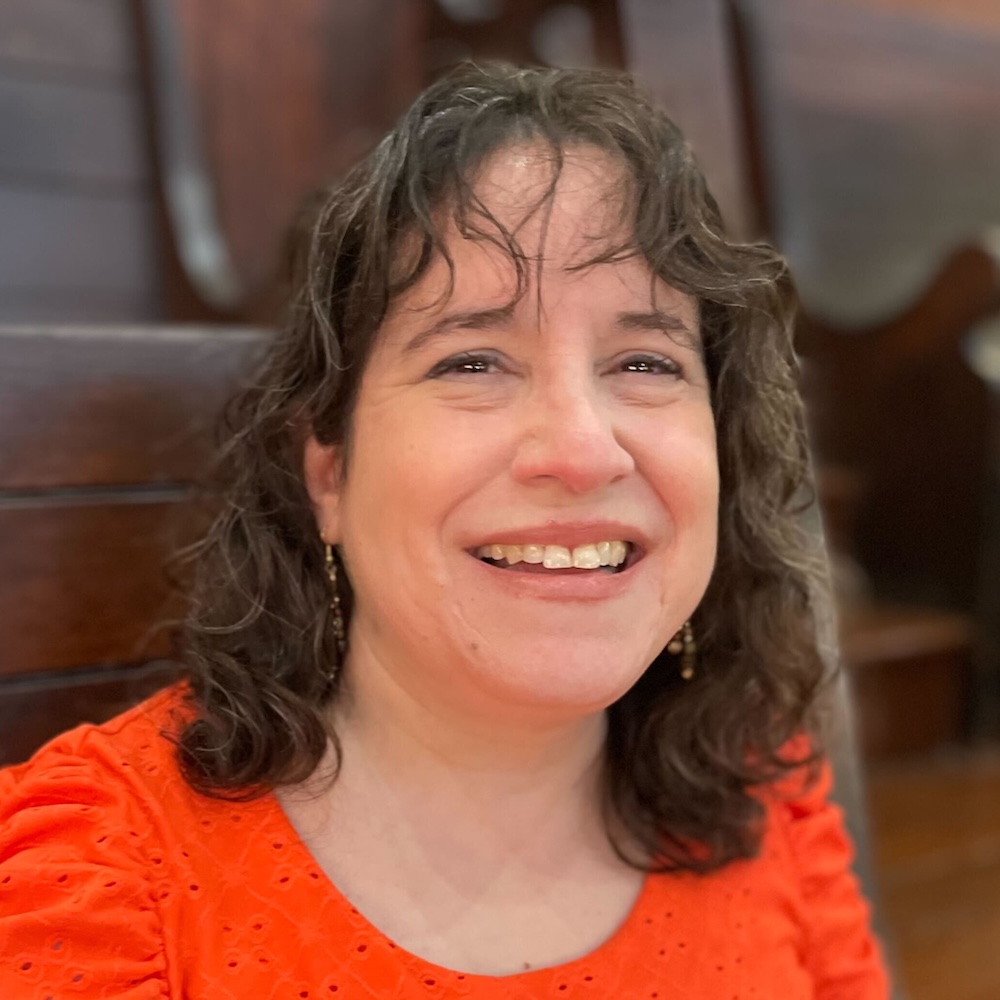Pacific Yearly Meeting, North Pacific Yearly Meeting, and San Francisco (Calif.) Meeting have joined a July lawsuit against the U.S. Department of Homeland Security (DHS) over the threat of federal immigration enforcement in houses of worship. Other plaintiffs include Evangelical Lutherans, American Baptists, and Metropolitan Community Churches.
The suit opposes the January 2025 revocation of the previous DHS guidance that advised Immigration and Customs Enforcement (ICE) agents to avoid enforcing immigration laws in or near “sensitive locations,” including hospitals, schools, and houses of worship. The previous guidance had been in effect for about 30 years and allowed for exceptions such as entering a house of worship to apprehend someone who posed an immediate violent threat.
Attorneys from Democracy Forward, Washington Lawyers’ Committee for Civil Rights and Urban Affairs, and Gilbert LLP filed the lawsuit on behalf of the plaintiffs July 28. Attorney Richard Giles represents the defendants, U.S. Secretary of Homeland Security Kristi Noem and the Department of Homeland Security.
The complaint argues that the First Amendment protects “freedom of expressive association” and that any government actions that limit that freedom are subject to strict scrutiny. The current DHS guidance limits and chills freedom of expressive association, the suit maintains.
“The result has been genuine human suffering and fear so severe that has stopped even the devout from coming to worship or the hungry from coming to receive food,” said attorney Kevin Friedl, of Democracy Forward, in a September 9 hearing in the U.S. District Court for the District of Massachusetts before Judge F. Dennis Saylor IV.
Declining attendance is “indisputably an injury in fact,” Friedl stated at the hearing, referencing a 1990 Ninth Circuit Court ruling in Presbyterian Church (U.S.A) v. United States as well as a preliminary injunction issued this year in Philadelphia Yearly Meeting et. al. v. U.S. Department of Homeland Security by Judge Theodore Chuang of the U.S. District Court of Maryland.
Quakers emphasize the importance of worshipers speaking if they feel moved to do so, but even if no one speaks, experiencing collective stillness is central to worship, Friedl explained in an interview. “The whole meeting benefits from more attenders being there,” Friedl said.
To fear attending worship does not, in itself, constitute harm, and plaintiffs are mounting a “pre-enforcement challenge,” Giles argued at the hearing. He noted that ICE had not entered or surveilled plaintiffs’ houses of worship. The facts of the lawsuit differ from the immigration enforcement discussed in Presbyterian Church because in that case government agents attended four churches and recorded services for up to nine months. When church members learned of the surveillance, attendance declined.
Giles did not respond to requests seeking comment.
In City of Los Angeles v. Lyons, the U.S. Supreme Court ruled that relief for plaintiffs must be based on “the reality of the threat of repeated injury, not subjective apprehension,” Giles said.
Plaintiffs asserted that declining attendance is a current harm.
“The experience of connecting with the Divine is strong when individuals can worship together without fear of abduction. The religious community is deeply harmed when any person fears to attend worship or does so in fear,” said Jeanne-Marie Duval Pierrelouis, clerk of Multnomah Meeting in Portland, Oreg., in a declaration provided by Democracy Forward.
Immigrants are not the only people who fear being subject to immigration enforcement at houses of worship, according to plaintiffs.
“People with brown skin are more worried than immigrants from Europe and Canada,” said Robin DuRant, clerk of Pacific Yearly Meeting, in an interview.
DuRant noted that assisting and welcoming immigrants is an essential way Quakers express their faith. Two California monthly meetings in Pacific Yearly Meeting offer scholarships for immigrants. Another two meetings in the yearly meeting provide transitional housing for new immigrants and those who have been detained.
In addition to decreases in worship attendance, fear of immigration enforcement at houses of worship leads to a decline in participation in social services, which are essential to congregations’ expressions of faith, Friedl argued at the hearing.
Faith communities have experienced decreased attendance in religious education programs, food pantries, English as a second language classes, and religious camps, Friedl explained at the hearing.
Congregations have also been harmed by a decrease in financial contributions as people avoid attending worship and are not present to make donations. Quakers have a longstanding commitment to pacifism so Friends’ apprehension about armed agents entering their meetinghouses disturbs their silent worship, Friedl argued at the hearing.
The threat of violence at meetinghouses violates worshipers’ faith commitments, according to Paul Christiansen, clerk of North Pacific Yearly Meeting. “Because we avoid and abhor physical violence, bringing weapons into our place of worship would be an assault on our faith and a violation,” Christiansen stated in a declaration provided by Democracy Forward. Christiansen is reluctant to encourage immigrants to come to worship for fear they would encounter armed agents.
North Pacific Yearly Meeting is spiritually connected to Quakers around the globe. Through FWCC Section of the Americas, members work with Friends throughout Latin America. Intervisitation, or reciprocal visits, with Latin American Friends is an important religious practice, Christiansen explained.
The new policy also violates the Religious Freedom Restoration Act, which states that the government can only “substantially burden a person’s exercise of religion” if it can show that doing so advances a crucial government interest and that the government’s actions are the least restrictive possible, according to the suit. “[F]or more than three decades they have developed less restrictive means with respect to enforcement in or near houses of worship and cannot articulate a reason why they are now insufficient,” the suit states.
Former Secretary of Homeland Security Alejandro Mayorkas issued guidance to ICE in a 2021 memo that discussed locations requiring special protection.
“Now it’s true the Mayorkas memo was not a total ban on enforcement at sensitive locations, and we don’t claim otherwise. I think what matters, however, is that it represented a significant cabining of DHS’s discretion in critical ways that are now gone,” Friedl said at the hearing.
In the hearing, Giles noted that the 2025 memo advises officers to use good judgment when deciding whether to enforce immigration laws in sensitive locations.
“It’s very important to recognize that the Mayorkas memorandum had these different caveats that relied on officer’s discretion, not just with protected areas, what qualify as one, but also what qualifies as near a protected area, what qualified as an exigent circumstance,” Giles stated in court.
The suit follows two previous complaints in which Quakers joined other faith communities to sue DHS over immigration enforcement in houses of worship. Courts have yet to issue final rulings in the other suits.
On February 24, U.S. District Judge Theodore Chuang granted a preliminary injunction for plaintiffs in the case but stopped short of enjoining immigration enforcement at all houses of worship nationwide. The judge noted that the Quakers in the lawsuit expressed concern that having armed DHS agents near meetinghouses would violate Friends’ pacifist convictions. The judge also pointed out that embracing the equality testimony and seeing that of God in everyone, regardless of immigration status, are central to Quaker beliefs.
The judge noted that DHS was obligated to explain how the new policy advances a “compelling state interest” that could not be furthered through less restrictive means but that the government did not offer such an explanation. The injunction prevents immigration enforcement at plaintiffs houses of worship while the lawsuit continues.
Philadelphia Yearly Meeting, Baltimore Yearly Meeting, and New England Yearly Meeting participated in the suit, which Democracy Forward filed in the U.S. District Court for the District of Maryland on January 27.
“The preliminary injunction in that suit only covered the parties that actually brought the lawsuit, and so we wanted to make sure that everyone who wanted to participate in a lawsuit and get protection would be able to do so,” said Madeleine Gates, associate counsel for Washington Lawyers’ Committee for Civil Rights and Urban Affairs, in an interview.
On April 11, U.S. District Judge Dabney L. Friedrich denied the plaintiffs’ request for a preliminary injunction in Presbyterian Church. The judge argued that the plaintiffs did not demonstrate that decreased attendance at worship gatherings could be traced to DHS’s rescinding of a policy preventing ICE enforcement at houses of worship. Friedrich stated that plaintiffs had not shown that the government was specifically targeting places of worship. Plaintiffs asserted that their congregations had experienced declines in attendance since the sensitive locations policy changed in January. The judge argued that some congregants are not leaving their homes for fear of ICE enforcement in their neighborhoods rather than due to particular concern in houses of worship.
Although the judge denied the preliminary injunction, a ruling on the lawsuit itself has not been decided. Plaintiffs, which include Friends General Conference, are appealing the judge’s denial of a preliminary injunction. The Institute for Constitutional Advocacy and Protection at Georgetown Law School in Washington, D.C., filed the suit on February 11.
The current lawsuit deals with issues central to democracy, according to one attorney for the plaintiffs.
“The rule of law is still important. The Constitution is still important,” said Sonia Murphy, partner at Gilbert LLP, in an interview.





Comments on Friendsjournal.org may be used in the Forum of the print magazine and may be edited for length and clarity.